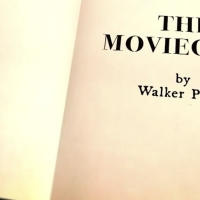David Mamet shows his characters in Glengarry Glen Ross through the lens of failure and success of a cutthroat, corporation driven that is by the idea of masculinity.
 If a man is doing good in his career, he is a good man. If he is not doing well, then he is not a man at all.
If a man is doing good in his career, he is a good man. If he is not doing well, then he is not a man at all.
This system of intertwined capitalism and virility is executed by the real estate office, which is owned by Mitch and Murray. While these characters are never seen in the production, the audience gets a sense of what these men are like by hearing what the salesmen say about the system they imposed on their workers.
The audience learns by word of mouth that Mitch and Murray exploit their salesmen by  only giving the workers a ten percent commission from the sales made. Not only this, but the salesmen who are successful get the best leads. Those who are not successful get the worst leads, dooming them for failure.
only giving the workers a ten percent commission from the sales made. Not only this, but the salesmen who are successful get the best leads. Those who are not successful get the worst leads, dooming them for failure.
To make matters worse, this system is treated as some sort of competition. This causes the winners to keep their jobs and win an extra prize. While the underachievers lose their job, thus stripping them of their livelihood and their masculinity.
This is shown in Levene’s line:
You have no idea of your job. A man’s his job and you’re fucked at yours. (2.1.519-520)
This line intertwines manhood with a job, giving no room for doubt on Mamet’s intentions in the play.
However, what is success in Mamet’s world?
There are two men who are doing well in their sales. Through them, we are shown what it takes to survive in the harsh, unforgiving male world Mamet has depicted on stage.
Ricky Roma is the top salesman. He is charming and cunning. Rather than trying to force his customers to submit to his sales tactics, he lures people into thinking that they want what he is selling. This may sound harmless, but the audience knows that Roma plays an active role and causing his coworkers to fail. He knows how his words affect others, and he uses that to his advantage.
Dave Moss is a successful salesman through his sheer aggressive force, but he lacks Roma’s charisma to be the best. By intimidating his coworkers and buyers, he stays efficacious in his endeavors.
Through deviousness and aggression these men climb the business hierarchy, allowing their victims and coworkers to be crushed under the weight of their actions.
What about the unsuccessful salesmen?
Shelly Levene is a washed-up real estate salesman, who has hit a streak of bad luck in his sales. This puts him in danger of getting fired by the company. However, “bad luck” is not the only problem that Leven has. He fears failure so much that he clings to anything that can make him successful. This act of desperation only causes Levene to stagnate in his past accomplishments, insuring that he will not achieve anything in the future.
George Aaronow is extremely meek and mild-mannered. He is dull, and he tends to repeat what others have told him. This makes him a poor businessman, and he is also in danger of getting let go.
Furthermore, the cast treats manhood as something to be earned. While hard work is a key factor in masculinity, it is seen that a man must take control of his own destiny.
This can be seen in John Williamson, who merely takes orders from Mitch and Murry and then passes those orders along to the salesman. His job is secure, and he has not had to work as hard as the others. This causes issues between Williamson and the other salesmen. This is seen specifically when Shelly Levene states,
Whoever told you you could work with men? (2.1.956-957)
This implies that Williamson is not a man in the eyes of Levene. Disregarding Williamson, since he does not have to worry about losing his job or being paid through sales like the salesmen. However, Williamson is no different than the other salesman. His motivations are identical to theirs. He has job security, so it would be foolish to risk it to be more of a “man” in the eyes of the salesmen. Nonetheless, he puts company loyalty aside to make extra money by selling his leads to Levene.
It is obvious that this system drives its employees to chase success and detest failure, which causes the men to become unempathetic and dehumanized. They have no concern or remorse for their victims or their colleagues. They are simply steps they must climb to reach the top of the business hierarchy.
The only entirely blameless figure in Mamet’s production is James Lingk, who is the mark of one of the salesman. However, he is seen as less of man. He is entirely dependent on receiving orders from his wife. He is constantly pushed around by others, revealing that he is weak. He does not belong in the business world of the salesman; he is merely a target to their abuse and deceit.
In the world of Mamet’s Glengarry Glen Ross, a man is someone who uses everything in their power to get ahead. A man works hard for the things he has. A man is deceitful and uncaring to those around him. A man always succeeds.
Anything less of success deems that individual to not be a man at all.



